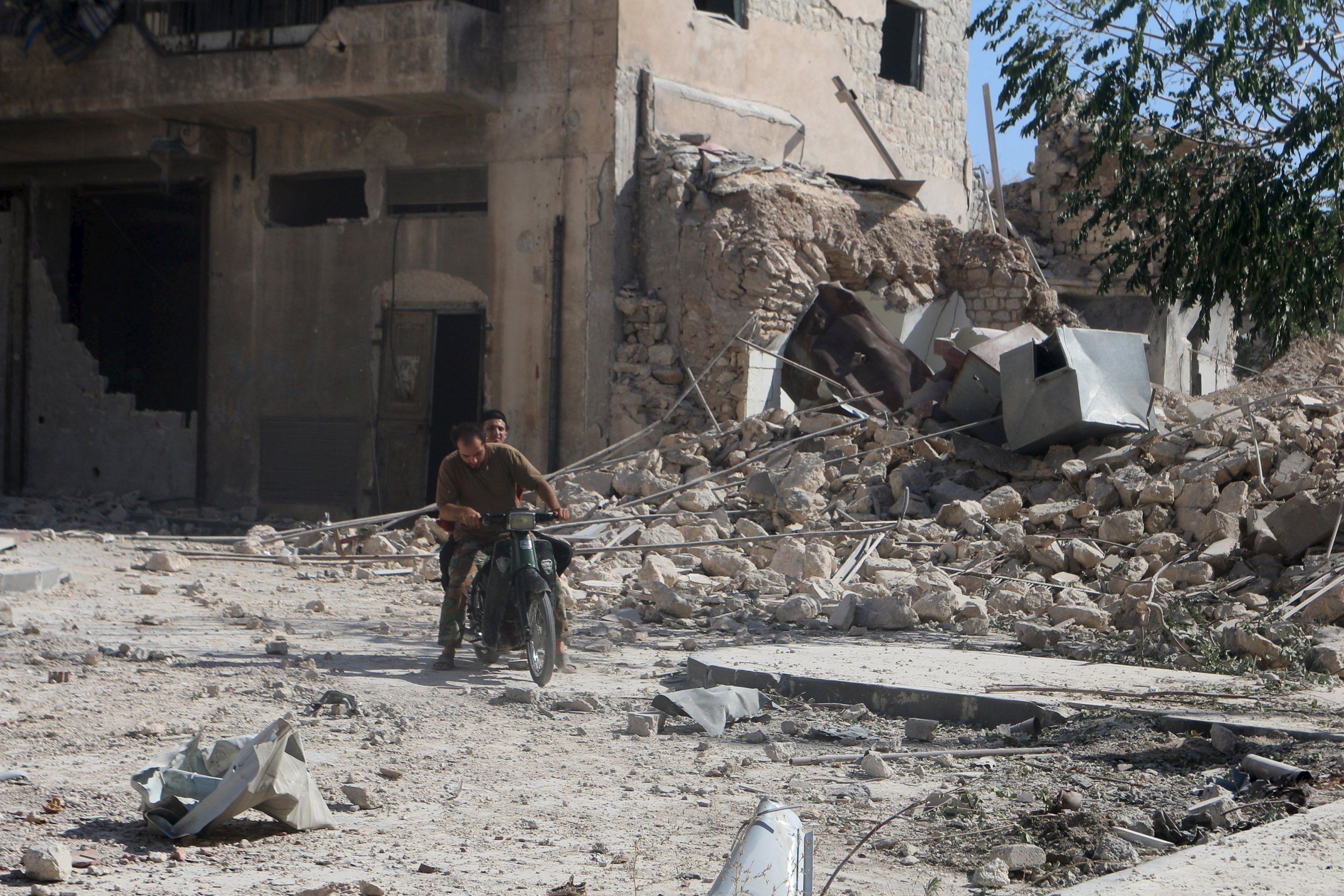
Armed conflict in the Middle East and the economic crisis in Greece have reduced the amount of nitrogen oxide in those regions over the past few years, inadvertently improving air quality despite the significant disruption to daily life and forced migration of millions of refugees.
Countries in Middle East and Greece have seen an "abrupt recent trend" of decreasing levels of nitrogen oxide, according to a new study in Science Advances. Nitrogen oxide contributes to climate change and is largely produced by the burning of fossil fuels to create energy for vehicles and in some industrial settings. In Damascus and Aleppo, Syria, levels of nitrogen oxide have fallen by up to 50 percent since 2011, "coincident with the uprising in spring of that year, which escalated into civil war," the report says. Similarly, since 2008, Athens has seen a 40 percent reduction in the amount of nitrogen oxide as Greece struggled through the ongoing economic crisis.

Researchers studied 10 years' worth of data from the Ozone Monitoring Instrument, which has measured global nitrogen oxide levels gathered by the NASA Aura satellite since 2005. The study's authors "were not prepared to find a rather unique insight into some of these dramatic events" as they initially set out to study air pollution, says Jos Lelieveld, co-author of the study and director of the Munich, Germany–based Max Planck Institute for Chemistry. "Each country, more or less, has its own story."
In 2011, when the uprisings known as the Arab Spring spread across much of the Middle East, something unexpected occurred: previously trends of increasing nitrogen oxide levels started to reverse, said Lelieveld. Nitrogen oxide levels began to drop in countries like Syria, Iraq and Egypt in 2010 due to political instability, a halt in industrial production and disruption to daily life from fighting. Fewer cars and decreased energy use caused emissions to fall as refugees from Iraq and Syria fled to neighboring countries or further afield.
"If these people move to other areas, they will bring their activities and their traffic into that area, so you see a downward trend in Syria and an upward trend in Lebanon, where these people are going to," says Lelieveld.
When asked about the health benefits of decreased levels of nitrogen oxide, Lelieveld simply said, "There is no silver lining to war."
Lebanon, a country of 4.5 million people and now home to more than 1 million Syrian refugees, and Jordan, a country of 6.5 million people where 650,000 refugees have relocated, have both seen large increases in nitrogen oxide, according to the report. Researchers also looked at Turkey, now home to nearly 2 million Syrian refugees and hosting the largest number of refugees in the world, but had difficulty measuring any nitrogen oxide increases there; the sensitivity of the Oxide Monitoring Instrument means its signal is better able to detect the impact of clusters of people in cities rather than those who have spread out, said Lelieveld, and in Turkey, refugees are widely dispersed.
In Lebanon, the Ozone Monitoring Incident can more clearly measure the change in nitrogen oxide levels—in 2014, increased by up to 30 percent—as refugees have concentrated in cities like Tripoli and Beirut, said Lelieveld. Lelieveld doesn't believe similar upward trends will show up in European countries hosting large numbers of refugees like Germany, where 800,000 people are expected to claim asylum by the end of the year.
"Initially, people that come [to Europe], they have nothing, so they cannot bring their car," says Lelieveld. In addition, he adds, they're spread around a country of 80 million residents, meaning there is a greater impact in countries with smaller populations, like Lebanon.
Researchers looked at Ukraine and parts of Africa, but couldn't see strong changes in the region. Kurdish and Shiite areas of Iraq are still showing upward trends of nitrogen oxide levels, but Islamic State-controlled areas in central Iraq show downward trends, according to the study. When U.S. and U.N. sanctions against Iran were tightened in 2010, nitrogen oxide emissions began to drop after years of increasing. "You could really see the considerable effects of the boycott, that was rather surprising," says Lelieveld.
The only other region where large changes took place was Greece, which shows the "huge" impact of the crisis on Greek society since 2008, says Lelieveld. "The change in Athens is similarly large as it is in Damascus or Aleppo.… I don't think people in Germany completely realize the huge impact the economic and financial crisis has had in Greece," he says, referring to the tendency by some in Germany and the German media to be skeptical about the real impact of Greece's financial trouble.
Since the crisis hit, many in Greece have become unable to afford expensive fuels and switched to cheaper, low-quality fuel; in Athens, for example, people have started burning wood as well as plastic and other materials, which emit toxins into the air.
Uncommon Knowledge
Newsweek is committed to challenging conventional wisdom and finding connections in the search for common ground.
Newsweek is committed to challenging conventional wisdom and finding connections in the search for common ground.
About the writer
Before joining Newsweek, Lucy Westcott was an editorial fellow at The Wire. Previously a United Nations correspondent for the Inter ... Read more





